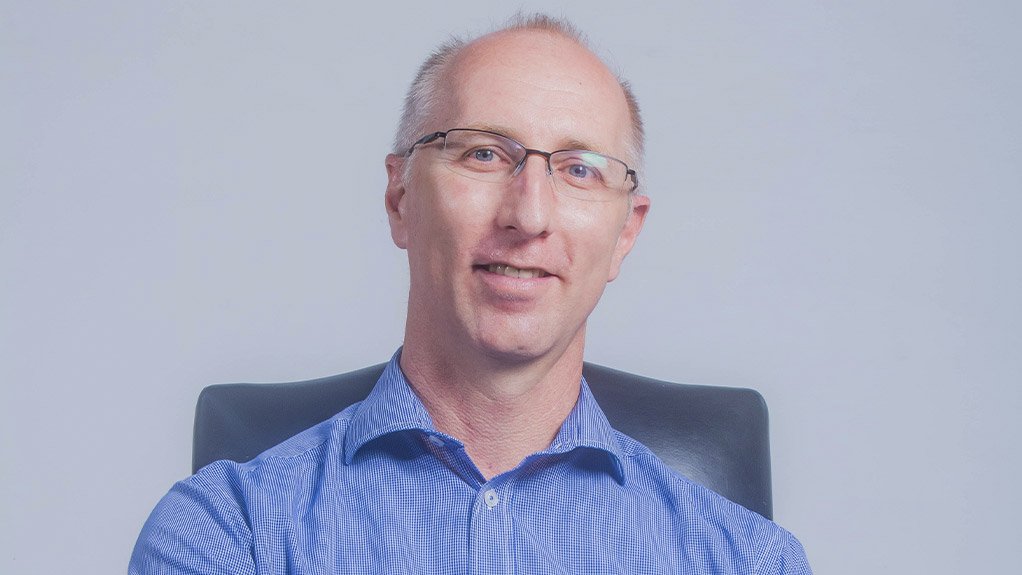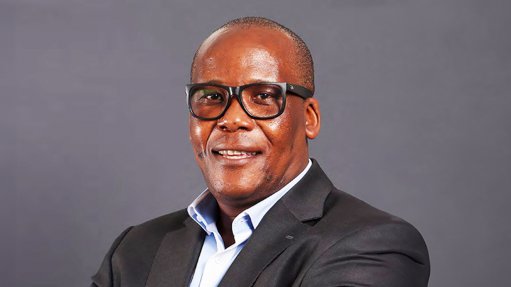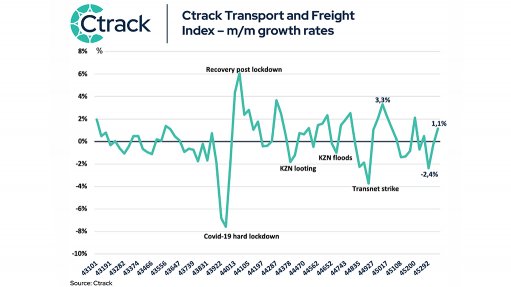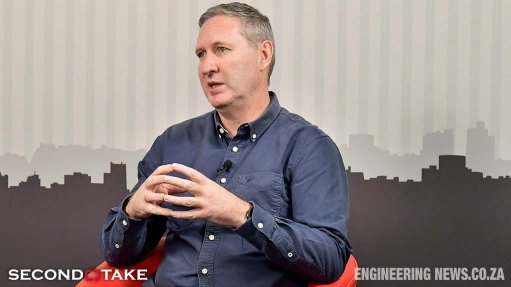Why do we need doctoral graduates to be able to compete in the global knowledge economy?
This article has been supplied by the author and has not been written or solicited by Creamer Media. It may be available only for a limited time on this website.
By Professor HB Klopper, CEO, the DaVinci Institute for Technology Management, a business school in Johannesburg
When we think of gearing up to compete in the global knowledge economy, we tend to think about the need for universal access to the internet and for broad-based digital education. Few of us think about the role that doctoral graduates have to play – or why they’re so important.
To gain some insight into this, we need to test our knowledge of exactly what a knowledge economy is. Unlike an industrial economy, which depends primarily on manufacturing output, a knowledge economy relies on the production, distribution and use of information and ideas. This is a radical shift in focus from what we have always seen as the source of value in an economy and is the concept that lies at the very heart of the fourth industrial revolution (4IR), the technology-driven tectonic shift that’s changing everything about the way we live, work, learn and play.
At an everyday level, this means that most jobs in today’s world require a well-developed ability to assess, analyse and apply knowledge in order to serve people in some way. Whether this is in banking, healthcare, education, retail or, indeed, manufacturing, the long and the short of it is that the greatest value a company or organisation has is the knowledge of its workforce. And that knowledge needs to be nurtured at every level.
From a strategic point of view, the ability to be agile and to innovate quickly and successfully within the context of constantly evolving technologies and shifting levels of interaction can make or break a business.
Banks, for example, now have to offer not just a physical presence and an internet presence, but also technologies that deliver a host of added values and an easy, user-friendly customer experience. Retailers, in turn, are rapidly having to adapt to the burgeoning demand for a seamless and convenient online purchasing experience that is backed up by a high level of customer service. Even in farming, the use of AI-driven technologies like drones and rain monitoring systems are essential if farms are to be efficient and remain competitive.
The role of doctoral graduates
This is where the need for doctoral graduates comes in; graduates who have the skills required to innovate and lead enterprises of all kinds into the future. And, if their qualifications are to be relevant in the contemporary working environment, study towards a doctoral qualification means much more than proposing an area of study and writing up a lengthy thesis that few people beyond the academy are destined to read. Especially in South Africa, which has such pressing transformation and development needs, the measure of a doctoral degree lies in the impact it has, both in the graduate’s field of study and on society as a whole.
Government has, in fact, recognised how important it is to promote doctoral study and has set a target of producing 5 000 doctoral graduates a year from 2030, nearly double the number of candidates who graduated annually just five years ago. It is also aiming to ensure that 75% of all academics in universities across the country hold a doctoral degree by 2030, again double the number who held this qualification at the turn of the decade.
The motivation for this is to equip academia, government, business and industry with suitably qualified individuals to drive the development of a robust and sustainable knowledge economy characterised by a future-focused mindset and what can only be described as extreme technological proficiency. In a context such as this, knowledge is the new form of fuel and doctoral graduates are the engines.
A new breed of doctoral graduate
With this in mind, it’s clear that we need to cultivate an entirely new breed of doctoral graduate and that study towards a doctoral degree needs to go way beyond the acquisition of specialised knowledge.
In short, doctoral degrees need to deliver graduates with a set of highly transferrable skills in problem-solving, critical reasoning, in-depth analysis and original thinking. Above all, doctoral qualifications need to strengthen the graduate’s capacity to consider every challenge in a multidisciplinary way and to take many different variables into account when finding and implementing solutions to those challenges.
If South Africa is to be able to compete with developed economies driven by knowledge, the value of doctoral education can’t be underestimated. And it is for this reason that candidates need to adopt an entirely different approach to study – and to apply their learning.
A unique approach to doctoral study
The nature of business schools should be such that they require doctoral candidates to interrogate the nature and role of their area of study while still in the process of writing their degree proposals – and to find a unique voice even before undertaking the degree itself.
Once equipped with a doctoral degree, candidates need to be able to make a significant contribution to change and development, both in their field of study and in society as a whole. They also need to be able to demonstrate a meaningful return on the investment they or their companies have made in advanced education. They therefore have to test and defend their theses before they are accepted for doctoral study and, throughout this initial process, they need to engage with faculty and other students in a way that reflects the real-life working environment.
In the DaVinci Business School model, only after they have successfully completed such a process, which lasts between six and twelve months, proposals are considered and, if they reflect the depth of insight and understanding expected at this level of learning, they are accepted for the degree programme and assigned a supervisor.
What kind of doctoral graduates do we need?
There is a growing need for graduates who are equipped to take a multidisciplinary approach to the management of technology, innovation, people and systems. This is because there’s a need for learning programmes to support the goals of both the National Development Programme (NDP) and the UN’s Millennium Development Goals (MDGs).
The aim of all institutions of higher learning today is therefore to do more than impart knowledge, it’s to empower future leaders with the capacity to change the world based on the universal values and teachings of visionaries like our namesake, Leonardo da Vinci, and our founding patron, Nelson Mandela. Like these and other historic leaders, we believe that education is the most powerful tool for effecting positive change in society. And if we boil it down to a single deliverable, as institutions of higher learning we need to contribute to the pipeline of excellence that will enable South Africa to compete successfully in the global knowledge economy.
End.
About the DaVinci Institute for Technology Management
At DaVinci we focus on the Management of Technology, Innovation, People and Systems Thinking (TIPS™), a unique proprietary framework that is embedded in all of our courses, from our higher certificate programmes right through to our doctoral programmes.
At this apex level of study, we offer two programmes: the Doctor of Business Leadership programme, which equips successful candidates to transform individuals, organisations and communities through innovative leadership strategies; and a Doctor of Management in Technology and Innovation, which enables graduates to make a meaningful contribution to the development and management of new knowledge in all sectors of the economy. The multidisciplinary approach we adopt in both programmes helps to enhance the impact our students and the teams they work with have on the markets, the economy and broader social development.
Our transformative learning journeys are designed with the ultimate impact of the degree in mind and we work with every candidate to create a unique educational experience. This produces graduates who are uniquely equipped to handle the challenges of a technology-driven future that is constantly evolving.
Comments
Press Office
Announcements
What's On
Subscribe to improve your user experience...
Option 1 (equivalent of R125 a month):
Receive a weekly copy of Creamer Media's Engineering News & Mining Weekly magazine
(print copy for those in South Africa and e-magazine for those outside of South Africa)
Receive daily email newsletters
Access to full search results
Access archive of magazine back copies
Access to Projects in Progress
Access to ONE Research Report of your choice in PDF format
Option 2 (equivalent of R375 a month):
All benefits from Option 1
PLUS
Access to Creamer Media's Research Channel Africa for ALL Research Reports, in PDF format, on various industrial and mining sectors
including Electricity; Water; Energy Transition; Hydrogen; Roads, Rail and Ports; Coal; Gold; Platinum; Battery Metals; etc.
Already a subscriber?
Forgotten your password?
Receive weekly copy of Creamer Media's Engineering News & Mining Weekly magazine (print copy for those in South Africa and e-magazine for those outside of South Africa)
➕
Recieve daily email newsletters
➕
Access to full search results
➕
Access archive of magazine back copies
➕
Access to Projects in Progress
➕
Access to ONE Research Report of your choice in PDF format
RESEARCH CHANNEL AFRICA
R4500 (equivalent of R375 a month)
SUBSCRIBEAll benefits from Option 1
➕
Access to Creamer Media's Research Channel Africa for ALL Research Reports on various industrial and mining sectors, in PDF format, including on:
Electricity
➕
Water
➕
Energy Transition
➕
Hydrogen
➕
Roads, Rail and Ports
➕
Coal
➕
Gold
➕
Platinum
➕
Battery Metals
➕
etc.
Receive all benefits from Option 1 or Option 2 delivered to numerous people at your company
➕
Multiple User names and Passwords for simultaneous log-ins
➕
Intranet integration access to all in your organisation





















